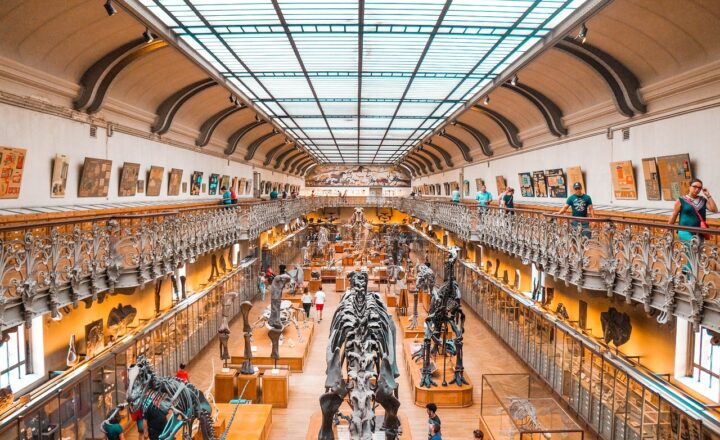The History of Manchester City: How Modern Legends Rose to Dominate
November 12, 2024

Manchester City Football Club, one of the most successful and popular football clubs in the world today, has an illustrious history that spans over a century. Founded in 1880 as St. Mark’s (West Gorton), the club has evolved dramatically, transforming from humble beginnings to becoming a powerhouse of modern football.
1. Early Years: Formation and Initial Struggles
St. Mark’s (West Gorton) was formed by a group of Sunday school teachers and was affiliated with the local church. In 1894, the club changed its name to Manchester City, reflecting its geographical roots. The early years were marked by inconsistent performances in the lower divisions of English football. City earned its first major honor in 1904 by winning the FA Cup, a success that marked the beginning of a new era.
The introduction of the Football League Championship in 1892 provided the structure that City needed to compete against established clubs. Over the next few decades, City fluctuated between the top two divisions, constantly striving for consistency.
2. The Golden Era: Success in the Mid-20th Century
By the 1960s, Manchester City began to assert itself on the national stage. Under the guidance of legendary manager Joe Mercer and his assistant Malcolm Allison, the club achieved considerable success, including winning their first league title in 1968.
City’s golden era further expanded with a memorable FA Cup victory in 1969 against Leicester City, followed by a triumphant European campaign that saw them lift the Cup Winners’ Cup in 1970. This period solidified City’s reputation as one of England’s premier clubs, driven by luminaries such as Francis Lee and Colin Bell.
3. Decline and Revival: The Challenges of the Late 20th Century
Despite the laurels of the past, the late 1970s and 1980s were tumultuous for Manchester City. Financial difficulties, mismanagement, and relegation to the Second Division marked a challenging period for the club. In 1990, City faced the harsh reality of relegation to the Third Division for the first time in their history.
In the years that followed, efforts to return to the Premier League were met with both triumphs and setbacks. A revival began in the late 1990s, starting with promotion back to the First Division in 1999, a decade marked by hope amid ongoing struggles.
4. The Sheikh’s Influence: Transformation into a Global Brand
The turning point for Manchester City came in 2008 when the Abu Dhabi United Group purchased the club. This acquisition injected vast financial resources that forever changed the club’s trajectory.
With the backing of wealthy owners, Manchester City entered a new golden age characterized by success both on and off the pitch. The arrival of high-caliber players such as Robinho, Vincent Kompany, and later, stars like Sergio Agüero and David Silva brought silverware back to the club.
Notably, City won their first Premier League title in 2012, with Agüero scoring a last-minute goal against QPR that etched his name into the club’s folklore. This victory was a profound moment, marking the dawn of a new era where City consistently challenged for the Premier League title.
5. The Guardiola Era: Mastering the Premier League
In 2016, Pep Guardiola was appointed as head coach, a key decision that propelled City to the pinnacle of English football. Guardiola introduced a distinct tactical approach that emphasized possession-based football and high pressing, transforming City’s playing style.
Under his stewardship, Manchester City has achieved record-breaking feats, including winning the Premier League with 100 points in the 2017-2018 season, and again clinching the title in 2019. City’s dominance extended to domestic cups, winning back-to-back FA Cups and League Cups during his tenure.
Moreover, City achieved the historic treble in the 2022-2023 season, claiming their first-ever UEFA Champions League title, further solidifying their status among football’s elite.
6. Club Culture and Identity: More Than Just a Football Team
Beyond the trophies and accolades, Manchester City has worked hard to cultivate a strong team culture and a sense of community. The club’s motto, “Success is a journey, not a destination,” epitomizes its ethos.
City’s commitment to youth development through their academy has produced excellent young talents, providing depth to the senior team. The City Football Academy, opened in 2014, serves as a model for nurturing young players, further embedding the club’s identity in the fabric of the local community.
Player welfare and community outreach programs illustrate City’s dedication to serving their fans and the wider Manchester area, striving to be a club that represents the diversity and spirit of its supporters.
7. Looking to the Future: Sustaining Success
As Manchester City continues to chase more silverware, the focus remains on sustaining success in a challenging and competitive landscape. The foundations laid by the past, combined with a clear vision for the future, align to position City as one of the leading clubs in football.
Investments in player development, technology, and analytics seek to redefine the competitive edge and ensure that City remains a formidable opponent in England and Europe.
This journey, steeped in history, triumphs, and challenges, illustrates how Manchester City transformed from its humble origins into a global footballing juggernaut, capturing the hearts of millions across the world.
Conclusion
The story of Manchester City unfolds as a remarkable saga of ambition, resilience, and evolution. Its rise to prominence illustrates the passion and dedication that characterize not just the club but its vast supporters worldwide. With a rich heritage and bright future, Manchester City’s legacy is sure to inspire future generations, ensuring that they remain a symbol of excellence in the world of football.








